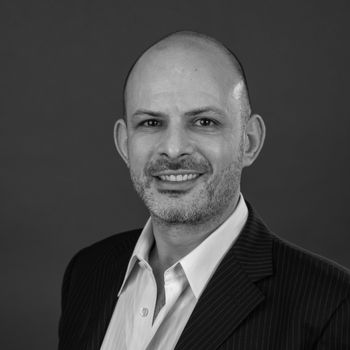PROF GIORDANO: The reckoning within higher education is here
Two years ago, I warned that a perfect storm was brewing as universities were destroying themselves through numerous self-inflicted wounds. They've refused to implement serious reforms, and now face a reckoning.
Nicholas Giordano is a professor of Political Science, the host of The P.A.S. Report Podcast, and a fellow at Campus Reform’s Higher Education Fellowship. With 2 decades of teaching experience and over a decade of experience in the emergency management/homeland security arena, Professor Giordano is regularly called on to speak about issues related to government, politics, and international relations.
Nearly two years ago, I warned that a perfect storm was brewing and that higher education institutions were destroying themselves through numerous self-inflicted wounds. Higher education has refused to implement serious reforms, and as a result, it is currently facing a reckoning, laying bare the institutional decay within academia.
In my original Campus Reform article, I warned about soaring tuition costs and student loan debt tethered to impractical degree programs that offer no real-world value. I warned that our colleges are producing inept individuals and that employers would begin to notice this. I explained how rampant censorship stifles debate and inhibits the development of critical thinking skills by suppressing the free flow of information. I repeatedly said that leftist indoctrination was fueling anti-American sentiment.
A lot has changed since that article was published. In 2015, 57% of Americans had a “great deal” or “quite a lot” of confidence in higher education, while 42% had “some” to “very little.” Today, only 36% of Americans have a “great deal” or “quite a lot” of confidence, while 62% have “some” to “very little.” In another survey, 56% of Americans believe a four-year college degree is not worth the costs, and many Americans believe that colleges are harming the country. Numbers like these would have been unthinkable 20 to 30 years ago, but as tuition and student loan debt has skyrocketed, many parents and college-aged students have determined that a 4-year degree is no longer worth the cost.
[RELATED: WATCH: Campus anti-Semitism is an attempt to dismantle the West, prof claims]
Employers have also begun to recalibrate their approach to hiring in response to the decline of higher education as the quality of college graduates has deteriorated. This is what happens when merit, hard work, and critical thinking are discouraged. According to a recent survey, 91% of small businesses stated that colleges are not “graduating students with relevant skills that today’s business community needs.” 74% of supervisors find Gen Z more difficult to work with than other generations.
We are now witnessing a shift in corporate hiring. In a resounding rebuke to higher education, nearly 50% of American companies have announced that they intend to eliminate 4-year degree requirements in 2024. This includes companies like Google, Bank of America, corporate Walmart, and others are following suit. States, like New Jersey, Pennsylvania, and Virginia have already ditched their degree requirements for many positions.
[RELATED: PROF ELLWANGER: Plagiarizing Toward Social Justice©]
Employers seek competent employees, not ideologues. Yet, the rising tide of radicalization has been evident for years as students are indoctrinated with anti-American sentiment and disdain for Western culture. This toxic ideology has been promoted because of an expansion of Diversity, Equity, Inclusion, and Social Justice (DEISJ) programs. Now, the Ivy Leagues are scrambling to set up antisemitism committees – which underscores the farce of DEISJ – after months of pro-Hamas rallies and calls for a genocide.
The pathetic attempts by Ivy League college presidents to evade congressional questions about whether advocating for genocide violates codes of conduct is a travesty. Ironically, these are the same types of institutions that have adopted ‘speech codes,’ where the slightest ‘micro-aggression’ could land a student in the administrative crosshairs. However, removing these presidents will have no impact, as they are a byproduct of the groupthink mentality present throughout academia. Unfortunately, there is a long line of equally incompetent administrators, molded by the same corrupted system, waiting in the wings.
The most impactful sign of the reckoning is the donor revolt. Universities could face a long-term financial crisis as benefactors have begun to shut off the financial spigots to these institutions. Colleges and universities stand to lose millions of dollars. Given the continued enrollment declines and the fact that 74% of colleges and universities are facing financial challenges, many institutions may be forced to cut programs or close their doors.
The inevitable fall of some four-year institutions will serve as a stark reminder that higher education is vulnerable to the repercussions of their own making. While the Ivy League schools may survive due to their massive endowments, others will not be so lucky. One thing is clear – after its collapse, we must rebuild a higher education system that returns to its original purpose – the search for truth through the free flow of information and critical inquiry, as well as implementing robust standards that instill a strong work ethic and encourage meritocracy.
Editorials and op-eds reflect the opinion of the authors and not necessarily that of Campus Reform or the Leadership Institute.

